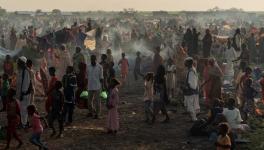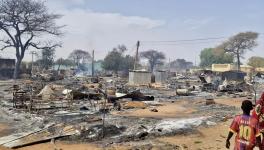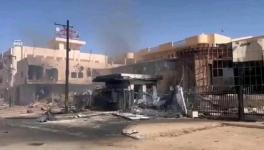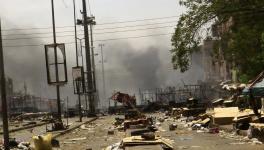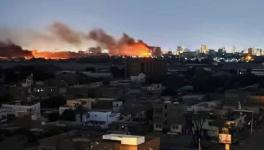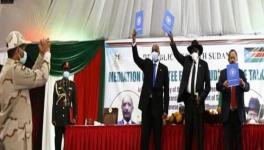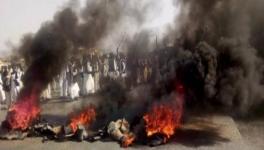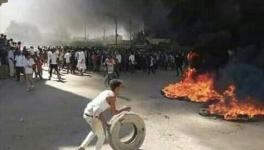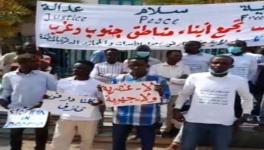Military Junta’s Threats Fail as Civilian Strike Brings Sudan to a Halt
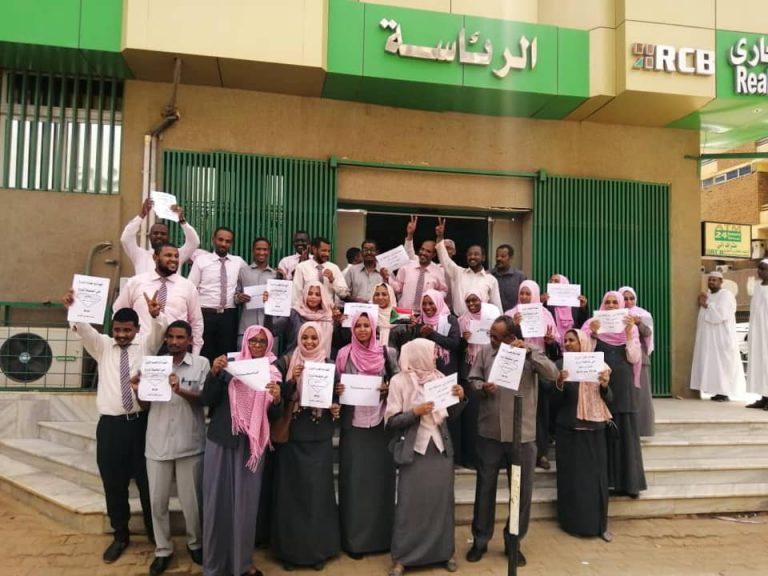
Bank employees in Sudan participated massively in today's strike. Photo: Sudanese Professionals Association
The two-day general strike which began in Sudan on May 28, saw the participation of over 90% of the workforce of the private and public sectors, including many government ministries. The strike was called for by the Sudanese Professionals Association (SPA) in order to pressurize the military junta to make way for civilian rule. The SPA was one of the driving forces in the protests which ousted former president Omar al-Bashir on April 11.
The call for the strike was given after the Transitional Military Council (TMC), through which the army is holding power, refused to agree to the formation of a civilian-dominated sovereignty council, headed by a civilian president. This council would lead the country during the transitional period before calling for elections.
The strike was a massive success despite several obstacles. The biggest opposition party refused to back the strike, the vice-president of the TMC threatened to fire all the workers who took part, and many of the crony unions affiliated with the ousted regime were allowed to revive activity.
Sudan Tribune reported that the industrial action had “paralyzed the banking and land transports sectors”. In an attempt to force the employees to work, the Rapid Support Forces (RSF) – a notorious paramilitary force which has in its ranks the fighters used to commit genocide in Darfur – barged into the Bank of Sudan in the capital city of Khartoum.
After they occupied the premises, the RSF blocked the exits and demanded the staff return their salaries and said that they would not be allowed to leave otherwise. The RSF is headed by the vice-president of the TMC, general Mohamed Hamdan Daglo, whose threat did little to stop the industrial action. Employees of at least 109 other branches of Bank of Sudan are on strike. Over 10 commercial banks in Khartoum also remain closed.
Forces also barged into the state’s electricity company in Khartoum and arrested the striking employees, the Electricity Professionals’ Association said in a statement.
Most hospitals and pharmacies also remain closed, as doctors have refused to attend except in cases of emergencies or accidents.
Public transportation – including buses and trains – has come to a halt. Dock workers in Port Sudan also downed tools. According to the Sudan Pilots’ Union, Sudanese aviators across different airlines participated in the strike, causing over 10 airline companies – including all foreign airlines – to cancel their flights scheduled in Khartoum airport.
Striking workers gathered outside the premises of their offices and demonstrated, chanting slogans and raising placards, demanding the TMC to immediately transfer power to the civilian forces which led and supported the uprising. These civilian forces have come together under the umbrella of Declaration of Freedom and Change Forces (DFCF), which includes the SPA and a number of opposition political parties.
On the day before the strike action was set to begin, General Daglo, addressing a gathering of police forces at the Khartoum HQ, said that the TMC had refused to hand over power to the DFCF because “they intend to embark on the implementation of their agenda which is to change everything. They want to change all the security services, including all the Rapid Support Forces, but also the civilian organs.”
Indeed, such overarching change is on the agenda of DFCF, which has mobilized and led hundreds of thousands of protesters for months. These changes include addressing the economic crisis; negotiating an end to the ongoing civil war within the country; and realigning Sudan’s external relations in a way that serves the interests of the Sudanese people.
Get the latest reports & analysis with people's perspective on Protests, movements & deep analytical videos, discussions of the current affairs in your Telegram app. Subscribe to NewsClick's Telegram channel & get Real-Time updates on stories, as they get published on our website.









